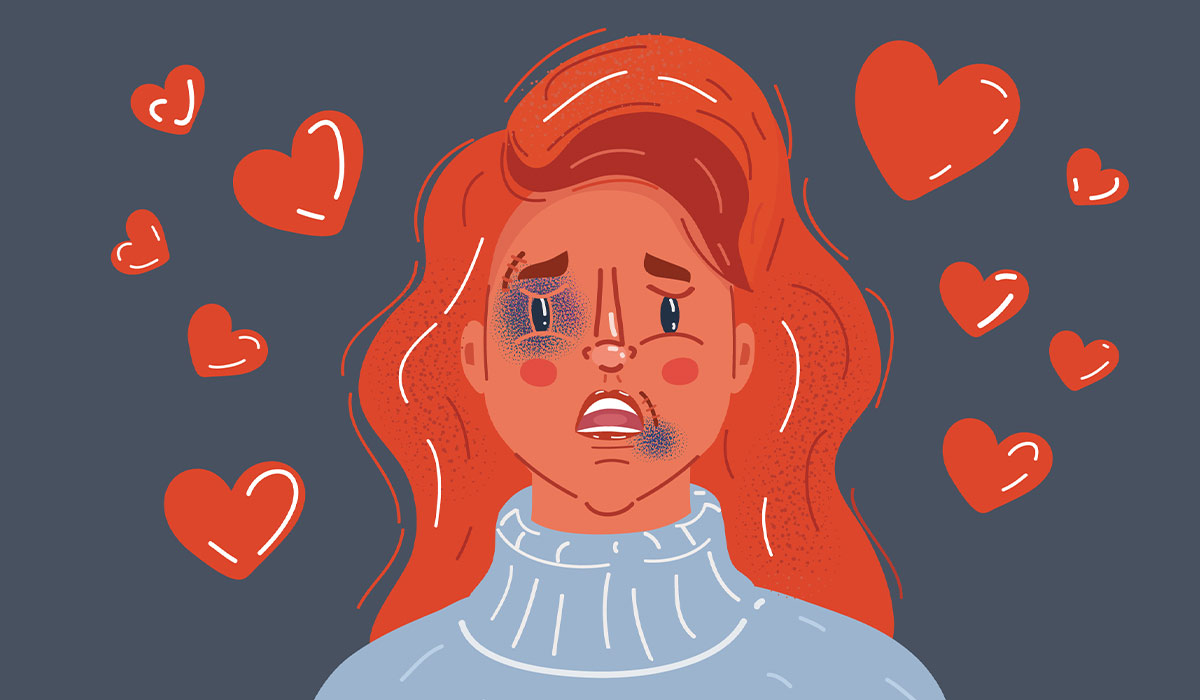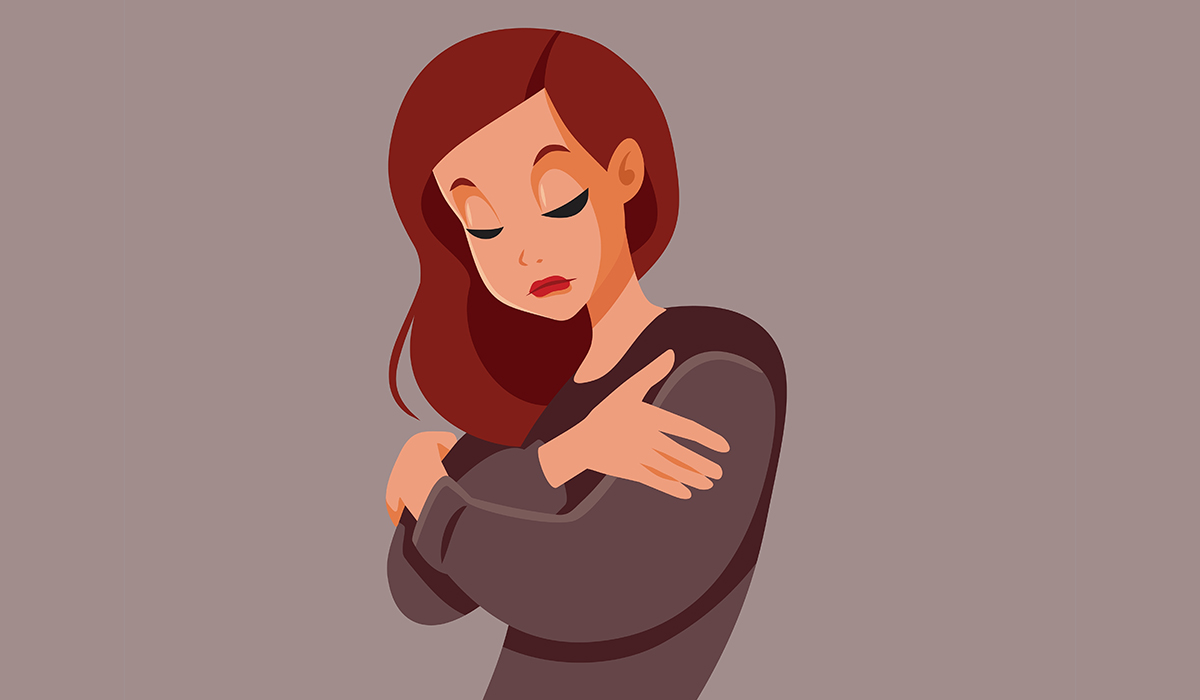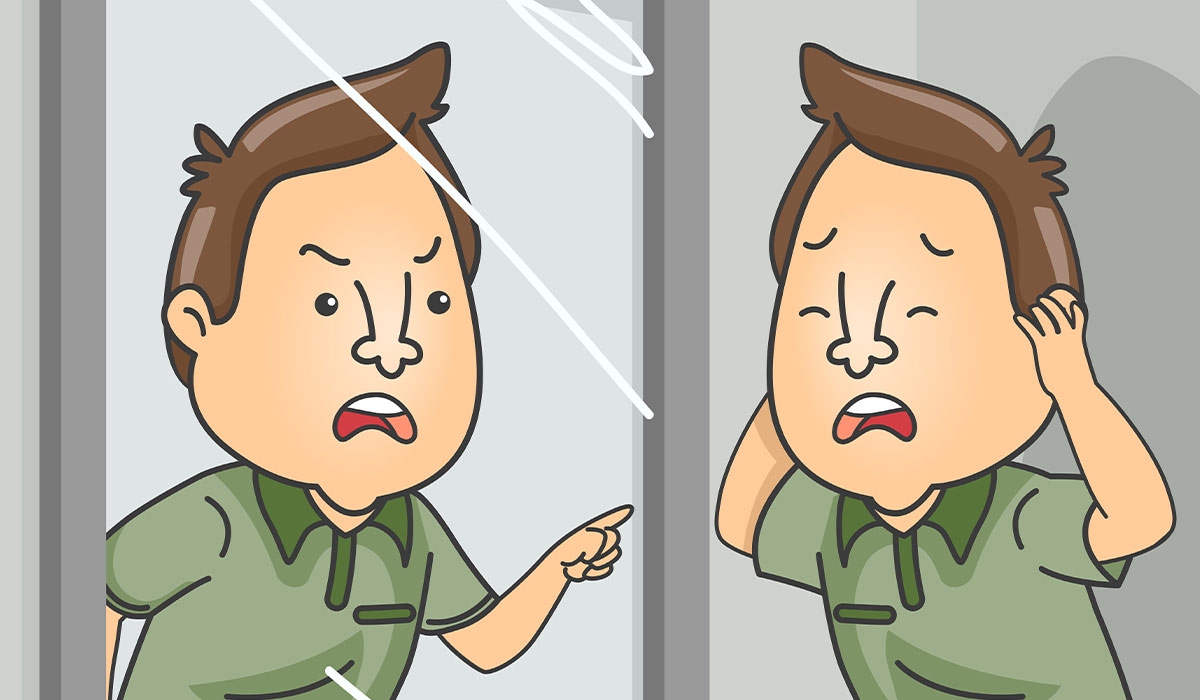The term describes people who lie about the presence of a life-threatening or chronic and burdensome disease to find support, sympathy, and understanding, among others.
It is a mental health condition and is recognized as such by the International Classification of Diseases (ICD-10), which includes it as a subcategory of artificial disorders.

Munchausen syndrome![]() has variants that further complicate its understanding. Two of them, factitious disorder imposed on self
has variants that further complicate its understanding. Two of them, factitious disorder imposed on self![]() and factitious disorder imposed on another
and factitious disorder imposed on another![]() , are often confused, although they have distinctly different features.
, are often confused, although they have distinctly different features.
In factitious disorder imposed on another, the individual claims that a dependent such as a child or an elderly person, is seriously ill, despite the lack of actual evidence to support this claim. In severe cases, the caretaker may even intentionally harm the child to validate their claim. Conversely, in factitious disorder imposed on another, a person intentionally causes symptoms of illness in another to gain attention and care for the victim. It is a form of abuse that can have serious health consequences for the victim.
The significant differences between factitious disorder imposed on self and factitious disorder imposed on another are the motivation, victim, and consequences. Factitious disorder imposed on self involves the claim that someone else is sick to gain attention, while factitious disorder imposed on another involves actively inducing symptoms in another person. In factitious disorder imposed on self, the victim is often unaware of the manipulation, while in factitious disorder imposed on another, the victim experiences actual physical suffering. While both forms can have severe health consequences for the victim, factitious disorder imposed on another is more direct in its effects and may be more dangerous.
Understanding the differences between these two forms of Munchausen syndrome is crucial for effective treatment and support for both victims and those who cause it. It is essential to seek professional help and support in both cases.
Munchausen syndrome, although not as common as other mental disorders, poses a severe challenge to both medical professionals and patients' families. Its symptoms![]() can be subtle and easily confused with other diseases. Those clues include:
can be subtle and easily confused with other diseases. Those clues include:
Diagnosing Munchausen syndrome![]() requires caution, empathy, and advanced medical knowledge. If you suspect that someone around you may suffer from this disorder, it is important to seek professional help and support.
requires caution, empathy, and advanced medical knowledge. If you suspect that someone around you may suffer from this disorder, it is important to seek professional help and support.
Münchausen syndrome is one of those disorders that can be difficult to identify, especially for people who are not familiar with its specificity. Its symptoms are often confused with other conditions, making diagnosis challenging.
Munchausen Syndrome is a complex disorder that differs from other illnesses![]() in that patients intentionally induce or fabricate symptoms. Unlike patients with other disorders, individuals with Munchausen Syndrome seek attention, care, and sympathy rather than material benefits, such as compensation or dismissal from work. Patients with this syndrome often possess an advanced knowledge of medicine, enabling them to simulate symptoms and manipulate the healthcare system convincingly.
in that patients intentionally induce or fabricate symptoms. Unlike patients with other disorders, individuals with Munchausen Syndrome seek attention, care, and sympathy rather than material benefits, such as compensation or dismissal from work. Patients with this syndrome often possess an advanced knowledge of medicine, enabling them to simulate symptoms and manipulate the healthcare system convincingly.
To avoid detection, patients with Munchausen Syndrome frequently change doctors and medical facilities, presenting themselves under different identities. Individuals with hypochondria, in contrast, genuinely believe that they are ill despite a lack of medical evidence, while those with Munchausen Syndrome are aware that they are feigning symptoms.
Munchausen Syndrome presents a complex and multifaceted disorder that requires an individualized approach and deep understanding. If you suspect that someone you know may be suffering from this disorder, it is necessary to seek professional help and support.
Münchausen syndrome is one of the most intriguing disorders in the field of psychiatry. People affected by this syndrome deliberately simulate, exaggerate, or self-induce disease symptoms. But what drives them to behave this way?
Those include causes![]() like:
like:
We need also to remember the effects of:

Understanding the causes of Münchausen syndrome is the key to effective treatment and support for people affected by this disorder. While their behavior may seem incomprehensible, behind it lies deep emotional and psychological needs. Compassion, empathy, and professional help can help them find healthier ways to cope with pain and suffering.
The Munchhausen syndrome, like every psychological condition, leads to numerous negative effects.
In the case of factitious disorder imposed on another, the affected person may experience actual symptoms of the disease, pain, or even permanent damage to health caused by the intentional action of the caregiver. In this type of Munchhausen syndrome, although there may be no direct harm, the victim may be exposed to unnecessary medical procedures or medications.
Those include:
Affected people may be stigmatized, isolated from the community, or lose support from loved ones. It may also lead to intervention by social or judicial services
Those include unnecessary medical procedures, medications, or hospitalizations can lead to serious financial problems for the family.
Understanding the effects of factitious disorder imposed on self and factitious disorder imposed on another is significant to effectively supporting both victims and those who cause them. In both cases, it is important to seek professional help and support to minimize negative consequences for all parties involved.
The psychiatrist makes the diagnosis of Münchausen syndrome. The differentiation should take into account malingering![]() (simulating) – faking illness to obtain sick leave or access to medicines. Such a patient progresses consciously and openly toward the goal he has set for himself.
(simulating) – faking illness to obtain sick leave or access to medicines. Such a patient progresses consciously and openly toward the goal he has set for himself.
Münchausen syndrome is a complex disorder that requires an individual approach and specialized intervention. People affected by this syndrome often hide their actions, which makes the treatment of Munchausen syndrome![]() extremely difficult. However, with appropriate support and therapy, there is a chance to improve the patient's quality of life.
extremely difficult. However, with appropriate support and therapy, there is a chance to improve the patient's quality of life.
This approach aims to identify the underlying factors contributing to a patient's behavior and supports the development of healthier coping mechanisms for managing their emotions. Its effectiveness can vary, with the patient's willingness to recognize their problem and engage in active self-improvement being key factors.
Cognitive-behavioral therapy![]() (CBT) is a psychotherapeutic approach that aims to identify and modify negative thought patterns and behaviors. This technique has been proven to be highly effective in the treatment of Munchausen syndrome, a disorder characterized by the repeated feigning of illness or injury to obtain sympathy or attention.
(CBT) is a psychotherapeutic approach that aims to identify and modify negative thought patterns and behaviors. This technique has been proven to be highly effective in the treatment of Munchausen syndrome, a disorder characterized by the repeated feigning of illness or injury to obtain sympathy or attention.
The efficacy of CBT in this context can be attributed to its focus on altering maladaptive thought processes and behaviors, which can lead to a reduction in the frequency and severity of symptoms associated with the disorder. Overall, CBT represents a promising intervention for individuals struggling with Munchausen syndrome and warrants further investigation as a treatment option.

Although there are no specific medications for Munchhausen syndrome, some antidepressants or anti-anxiety medications may help treat co-occurring disorders.
Family therapy is a practical approach that can be utilized when patients exhibit behaviors that impact their loved ones. This therapeutic intervention aims to enhance communication and promote mutual support within the family unit. Family therapy can result in positive outcomes for the patient and their family members, as it provides a safe space for open dialogue and fosters a collaborative approach to problem-solving. This approach can lead to better understanding and empathy and strengthen family relationships by facilitating improved communication between family members.
Certain types of attention can exacerbate mental health disorders, impeding recovery. In today's digital era, individuals can share personal narratives of their afflictions without verification, attracting thousands of supporters. While this may initially appear beneficial, the unfounded attention may perpetuate the disorder rather than alleviate the underlying pain and trauma. This misguided attention fails to address the root causes of the disorder, hindering the healing process.
When dealing with factitious disorder, providing appropriate treatment can facilitate a shift in the individual's cognitive patterns. The most effective approach to treatment is one that is patient and non-judgmental. The involvement of a physician is crucial to assess for any genuine physical distress or self-injury. Mental health professionals can play a significant role in guiding individuals through compassionate therapy aimed at enhancing their ability to manage fear and stress. Over time, individuals with factitious disorder can cultivate genuine, healthy relationships with those around them and with their bodies.
If you suspect that someone may be suffering from factitious disorder, it is important first to comprehend their complex emotions and genuine needs. Engaging with their flawed reasoning can be a delicate process and should be approached cautiously until they are ready to embrace reason. Fortunately, you can seek advice and guidance from mental health experts at any point to determine the appropriate course of action. It is important to recognize that factitious disorder extends beyond cognitive confusion. Your friend or loved one could be at genuine risk of further mental and physical harm. Ultimately, they can find the love and support they seek – recognition of their true selves beneath the surface.
Table of Contents

A hypochondriac is a person who is constantly looking for diseases and various health problems in themself. How is this… read more »

Bipolar disorder is a mental disorder characterized by the alternation of extremely different mental states – depression and mania. What… read more »

Stockholm syndrome is a phenomenon in which a person who is a victim of violence begins to identify with the… read more »

What are the signs of narcissistic personality disorder? Learn, when it is time to start therapy. Check out, the ways… read more »

Borderline Personality Disorder is a severe psychological case that requires appropriate treatment. Learn what type of therapy is available for… read more »

Ehlers-Danlos Syndrome is a group of diseases with a genetic basis. Learn all the symptoms associated with EDS. Find out… read more »

Tourette syndrome is characterized by tics. What are its causes? What to do if we observe disturbing symptoms? read more »

Dysmorphia is a mental disorder associated with a negative body image. It is a common problem these days. Learn how… read more »

Dissociative identity disorder Ii is characterized by the presence of at least two independent and different personalities in one person.… read more »